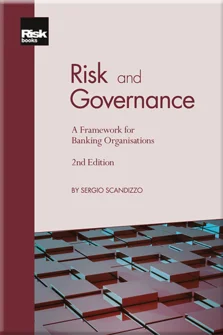The Nature of Corporate Governance in Banking
Introduction: The Confluence of Risk and Governance
Corporate Governance, Information and Control
The Nature of Corporate Governance in Banking
Regulation and Governance
The Centrality of Risk Management
The Mission, Organisation and Governance of Risk Management
A Cartography of Banking Risks
Operations Risk in Extreme Market Conditions
Managing Legal Risk
Managing Reputation Risk
Drawing Boards: Motivations and Responsibilities in the Boardroom
Executive Compensation: Performance, Regulation and Ethics
Fair Value, Auditing and Internal Controls
Risk Management and the Role of Culture
The Board of Directors
Compensation
Auditing, Reporting and Disclosure
This chapter will examine the peculiarities of corporate governance of banks as they are presented in economic theory, as well as the central role that dealing with uncertain future outcomes takes in banking. Risk, and the approach the various decision-makers have towards it, are also at the centre of the conflicts that arise in the management of banking activities. However, sometimes a lack of such conflicts can be equally detrimental to governance objectives, particularly when the short-term interests of managers and shareholders are aligned. Finally, we will look at the various stakeholders’ points of view and conclude that another key feature of banking is an unusually large number of stakeholders, all fundamentally – but in different ways – concerned with risk.
WHAT IS (REALLY) SPECIAL ABOUT BANKS
The previous chapter highlighted a number of issues that run through the debate on corporate governance, all of which are of course relevant to the governance of banking organisations. Banks, however, present several characteristics that set them apart from other firms with regard to the opaqueness of their business activities and their role and relationship with the wider
Copyright Infopro Digital Limited. All rights reserved.
As outlined in our terms and conditions, https://www.infopro-digital.com/terms-and-conditions/subscriptions/ (point 2.4), printing is limited to a single copy.
If you would like to purchase additional rights please email info@risk.net
Copyright Infopro Digital Limited. All rights reserved.
You may share this content using our article tools. As outlined in our terms and conditions, https://www.infopro-digital.com/terms-and-conditions/subscriptions/ (clause 2.4), an Authorised User may only make one copy of the materials for their own personal use. You must also comply with the restrictions in clause 2.5.
If you would like to purchase additional rights please email info@risk.net











